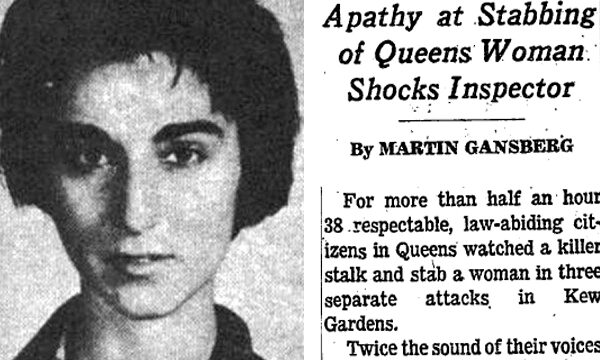Travelers have and will experience the good and the bad side of travel, sometimes indirectly. Both are inevitable, of course but let’s go one step further and talk about the indirect involvement with the “bad” or undesirable side of travel. Let’s talk about how to deal with situations that do not involve you directly – in other words, the bystander effect.
(All images in this articles are sourced from google)
Often we get involved in someone else’s battle, knowingly or unknowingly. What are the cause and effect of this? Should you get involved, especially as a traveler, since you are already outside your home country and limited by time, means and familiarity? Is there a right way to deal with other people’s situations? Most importantly, should you?

Table of Contents
Should I/You intervene?
My own journeys are made up of trials and errors and I freely admit there is no such thing as a perfect holiday. Things have gone wrong, and things will go wrong.
I give you three examples here – In 2011, when I was traveling in Papua New Guinea, an attempt had been made on the then acting prime minister and the city was in chaos. I was due to leave the next day but no one was willing to drive me to the airport. In the end, an Australian residing the same hotel offered to drive me. Did he really have to risk his life to help me? No. But did he? Yes. Could he or others be blamed for not jumping in to help? I think not.
Incident No 2: I was once caught in an election campaign that turned violent in Uganda. I ended up hurt in the process – but all the while I sat on the road nursing the injury, no one came to help. People were either too scared or too lazy to intervene or lacked the ability to do so.
Incident 3: In Taksim, Istanbul a man collapsed on the road. It looked as though he was having an attack. Two people, including me, rushed to help. Everyone else walked past uncaring. We tried to get someone to call the ambulance but people just walked on. Fortunately there was a police car nearby who came to the old man’s rescue. I don’t know if our helping stabilize him saved his life, but we did what we thought we had to do.
All three incidents are a classic example of a bystander effect – wherein everyone thinks someone else will help. You see the bystander effect happening a lot in day-to-day life, in your own hometown or neighbourhood. It’s the idea that when people see someone in need of help, they automatically assume that others will help them, so they don’t have to. The more people there are at a scene where someone needs help, the less likely it is that anyone will help. But kindness and compassion should be a universal concept. If you don’t help those around you, you’re part of the problem. In other words, the greater the number of bystanders, the less likely it is that any one of them will help.
The only difference is that when you travel to a new country and are so overcome with emotions for the country and its people, you have the urge to “jump in” to help – be the Good Samaritan. But that is just where you should stop because most times you are simply out of depth.
Famous cases of bystander effect
In 1964 Kitty Genovese was stabbed in New York – there were 38 witnesses and none of them did anything. Kitty, 28, is believed to have screamed for help but no one acted. She was brutally murdered by a psychopath.
Kitty has become an icon recognized around the world, and her name is cited each time a person is not helped by inactive on-lookers.
As travelers we are all susceptible to this effect and incident – but how we can prepare for it is another question. Either of us could be the next Kitty Genovese – but can we blame the indifferent public for refusing to help?
Another most famous example of bystander effect is Kevin Carter’s Pulitzer Winning Photograph of 1993. The picture showed a female Sudanese baby, alone and severely emaciated, attempting to crawl to an aid station for food. A vulture stands on the ground behind her, waiting for her to die so it can eat her.

Carter claimed that he waited 20 minutes for the vulture to spread its wings, which he thought would make a better picture, and when it didn’t, he took the picture as is. For those 20 minutes, the toddler had to rest before resuming its trip. He took the picture, scared the vulture away, then left the girl to continue crawling on her own. Carter claimed later that he just “didn’t want to get involved.” He killed himself the next year, after winning the Pulitzer for this photograph, by carbon monoxide poisoning, in his truck in Johannesburg.
For years, his actions were questioned. What should he have done? Was he wrong when he walked away without saving the girl?
Right or wrong
On the other hand, sometimes even if you volunteered help, it is not appreciated –such is the irony of life. I know this when because I once tried to save a woman when a bar fight broke out in Cambodia and the guard rudely asked me to leave saying “it is not your problem. You stay out of this.”
Should I have insisted on helping out? I don’t know. Should I have stretched my neck out in an alien country and risked getting hurt in the fight?
If I were to summarize all that is learnt is that there is no real “right or wrong” when it comes to helping someone else out – or not? I know that sounds like the opposite of what I’ve been talking about in this article but the fact is you ALWAYS have to take into account the “unknown” in any fight. It is VERY possible that you could end up being killed if you stick your nose in someone else’s business and try to break up a fight.
Did I make the smart move in helping that woman out of the bar in Cambodia? Maybe…maybe not. I intervened because I couldn’t NOT intervene. I couldn’t walk away. To some that may be brave and to others it may be stupid.
But I have also learnt that never expect anyone to rush in to help you if you’re being attacked because you will be disappointed.
It’s just a plain fact…99% of the people out there won’t do anything but stand there and watch you or your family get brutalized. Maybe it’s their fear of being hurt themselves…maybe they don’t want to “get involved”…or maybe they’re just smarter than I am! Nonetheless, I’ve witnessed enough assaults to know that witnesses hardly EVER come to your aid.
Here is what I have learnt
1. Never join in a fight that is not your own.
2. You never know where the fight can end up, so if you are not affected in any way, leave.
3. Better still, if you have the urge to do something to help, call the authorities.
4. Never mind if someone thinks you are a sod, a deserter, just leave.
Over the years of traveling, I spoke to many travelers about this to understand their experience and views. I was surprised at the answers I received. Majority of them thought it was of no use getting involved in a fight and risk getting injured for someone they didn’t know. Had it been a friend or family…
The most common answers I got were –
- I’d walk away. Why ruin a holiday for some stranger?
- No way I’d help. Hey, I am a traveler out to have a good time – what could I possibly do?
- Once broke up a fight but ended up getting sucker punched from behind by one of participants.
- Probably not, I did once ended up getting my gum cut!
- If I don’t know or care about the people involved why would I risk myself getting hurt to help them?
- It’s not my fight. These things happen, surely there is some other way of dealing with it.
Just how strong is our tendency for non-intervention in crowds? Well, simply imagining being surrounded by people is enough to make us less helpful. But should that stop you from traveling? No. But it can surely prepare you for what to expect, or not, when you run into trouble.
| FACT BOX According to Latané and Darley, two scientists most famous for their paper on bystander effect concluded that there are five characteristics of emergencies that affect bystanders –Emergencies involve threat of harm or actual harmEmergencies are unusual and rareThe type of action required in an emergency differs from situation to situationEmergencies cannot be predicted or expectedEmergencies require immediate action |





Excellent and well researched!